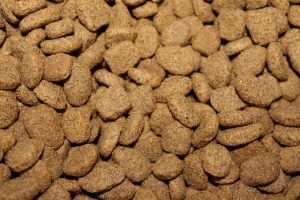Caring for a dog is no easy matter. Similar to human babies, dogs are both adorable and often unable to function properly without oversight. In order to guarantee their well-being, you have to treat them just like you’d treat a human child. That means feeding them good quality food, walking the puppies when they need to relieve themselves, washing them regularly, and of course, taking care of any medical issues that may plague your companions.
Unsurprisingly, medical disorders pose the most problems to both new and seasoned dog owners. Take inflammation, for example. It is a common response that occurs whenever the body experiences an infection or injury. Still, sometimes it can get out of hand, and untreated, it can become a very painful experience for your dog. Below you will find the most common causes of inflammation like food allergies and bacterial overgrowth, symptoms like pain and swelling, and ways you can help your fluffy companions such as using anti-inflammatory medicine, providing a balanced diet (which should also be well-suited, e.g., if you have a goldendoodle, you only choose the best dog food for goldendoodles, if your dog is neutered, you look for food for neutered canines, and so on), or exercising your pup. Read on and learn how to help your doggie survive this annoying ailment.
What Is Inflammation and What Are The Most Common Symptoms?
Inflammation is a physical response involving blood vessels dilating to allow more white cells to damaged areas. The process is meant to protect us from harmful bacteria and keep our organs safe. The immune system sends white blood cells to the source of the problem, releasing chemicals such as histamine that dilates blood vessels and widens the area to make it easier for white blood cells to fight off bacteria and other invaders.
The process often leads to redness, swelling, pain, and ultimately loss of function. The body temperature also rises by around 3 degrees Celsius. Inflammation isn’t always harmful, though. It allows us to heal faster and helps us get rid of infections and other potentially dangerous invasions.
What Causes Inflammation In Dogs?
There are several reasons why your dog might be experiencing inflammation, including:
- Infections – Dogs are vulnerable to many bacterial infections, including giardiasis, kennel cough, etc. If left untreated, they can cause severe inflammation in your pooch’s body. This can be quite painful and sometimes life-threatening.
- Osteoarthritis – This is a degenerative disease caused by aging and genetic factors, among others. It involves a breakdown of cartilage, leading to inflamed joints that become very painful. Because of that, it may require specialized medication like the Meloxicam for dogs.
- Food allergies – These occur when your dog’s immune system doesn’t recognize a particular nutrient as “friendly” and tries to protect its body from it by building antibodies against specific foods.
- Environmental stressors – These include UV rays from the sun, toxins from pesticides or herbicides, overcrowding, etc.
- Bacterial overgrowth – This occurs when the good bacteria in your dog’s digestive tract overwhelm the bad ones and start multiplying uncontrollably.
- Viral infections – These involve viruses such as parvovirus, among others. They attack a dog’s white blood cells and make it difficult for them to fight off bacteria and fight off infections.
Types Of Inflammation In Dogs
There are several types of inflammation in dogs, including:
- Acute – This happens when your dog encounters an infection or injury that requires immediate treatment.
- Chronic – This is caused by diseases like osteoarthritis, cancer, etc., that require months or years of treatment before they go away completely.
- Heat – When your dog is overheated for extended periods, their immune system starts breaking down, leading to inflammation of their muscles and internal organs, including the brain.
- Trauma – Any injury caused by trauma, such as accidents involving cars or other vehicles, may cause inflammation in your dog’s skin, bones, muscles, etc.
- Cutaneous – This causes inflammation in your dog’s skin, including rashes, hot spots, allergic dermatitis, etc.
- Blepharitis – This causes inflammation of your dog’s eyelids, leading to bacterial infections during eye-licking behavior.
- Gastrointestinal – This causes inflammation in your dog’s digestive tract, often due to food allergies or bacterial overgrowth, among others.
How To Handle Inflammation In Dogs
There are many ways you can help your dog overcome inflammation, including:
- Exercise – You should walk your dog at least once or twice every day during the early morning or evening hours when it is cooler for them to prevent overheating.
- Proper hydration – Dogs are unable to sweat as humans do, so they are more prone to dehydration if they are overactive for too long or under high ambient temperatures for extended periods. You should always provide plenty of fresh water to drink even if they don’t seem thirsty initially.
- Diet – Your pup should have a diet rich in omega fatty acids, especially if they are dealing with arthritic pain due to osteoarthritis. Fish oil works well as it contains omega-three fatty acids that help reduce inflammation in dogs naturally without causing any side effects.
- Environment – Make sure your dog gets enough rest, so they don’t have overactive immune systems overcompensating for lack of sleep. Give them plenty of attention too, so they don’t feel lonely or left out of activities with the family.
- Medication – If all else fails, you should take your pup to the vet, who will prescribe anti-inflammatory medicine or steroids depending on what kind of reaction they’re having to the inflammation and what is causing it in the first place.
- Surgery – If your pup has a bone infection or other serious condition that can only be treated through surgery, you might need to get them operated on by a professional surgeon at a specialized canine hospital or clinic.
Conclusion
Inflammation in dogs can be a harrowing and frustrating experience, especially if it is caused by something like arthritis. Thankfully there are many ways you can help your puppy survive this condition and treat it as soon as possible. It is important to keep in mind that inflammation is not always harmful, and some of it is actually essential for healing and recovery.
So the next time your dog has a fever or looks like they’re in pain, don’t panic, but instead take them to the vet for a check-up. They might just have a minor case of inflammation that can be easily treated with a balanced diet, exercise, and time.



